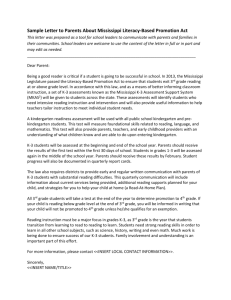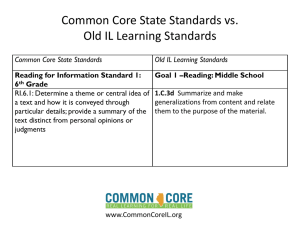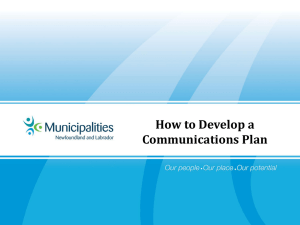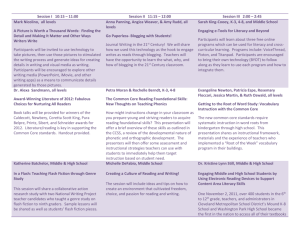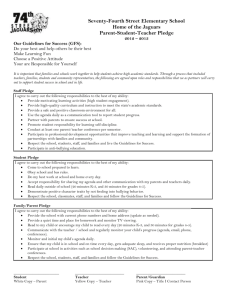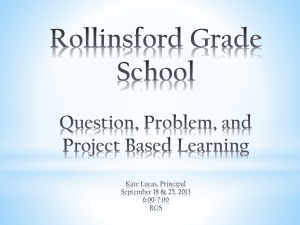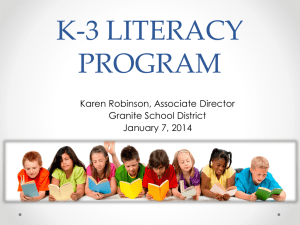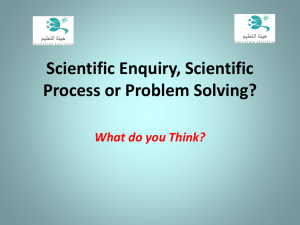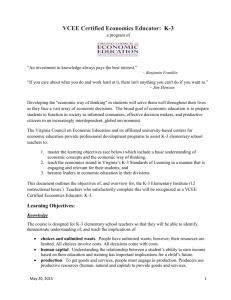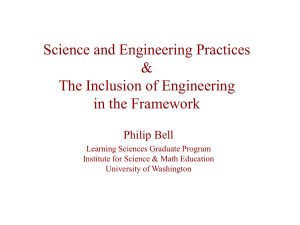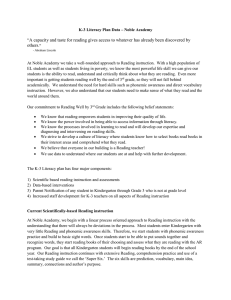Science TEKS
advertisement
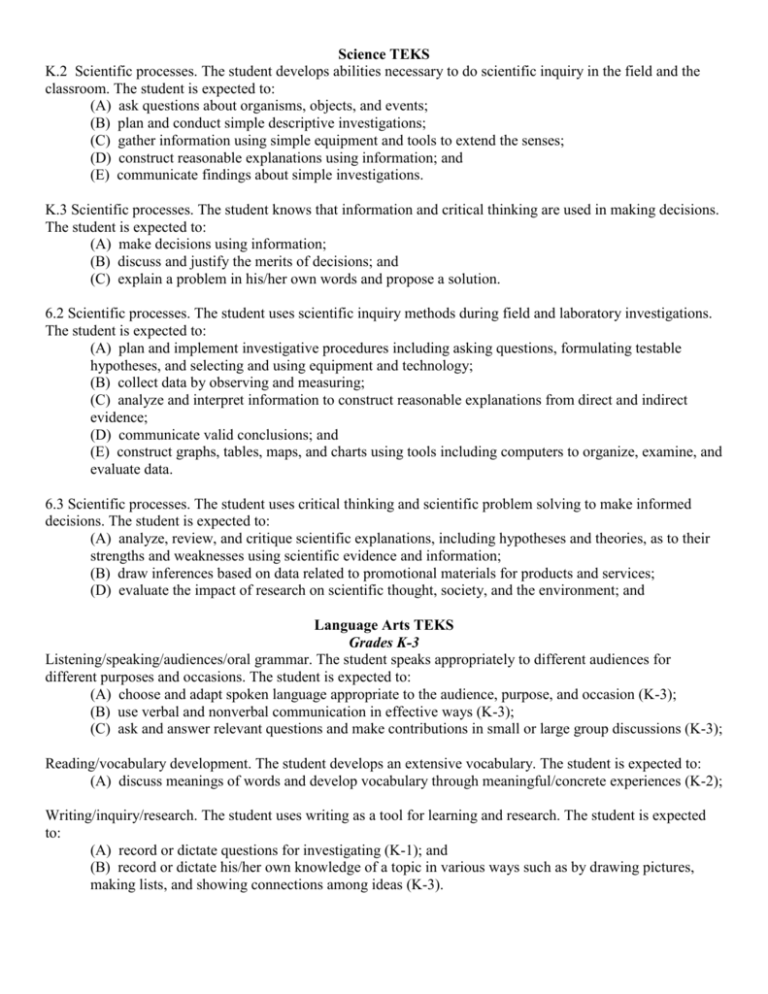
Science TEKS K.2 Scientific processes. The student develops abilities necessary to do scientific inquiry in the field and the classroom. The student is expected to: (A) ask questions about organisms, objects, and events; (B) plan and conduct simple descriptive investigations; (C) gather information using simple equipment and tools to extend the senses; (D) construct reasonable explanations using information; and (E) communicate findings about simple investigations. K.3 Scientific processes. The student knows that information and critical thinking are used in making decisions. The student is expected to: (A) make decisions using information; (B) discuss and justify the merits of decisions; and (C) explain a problem in his/her own words and propose a solution. 6.2 Scientific processes. The student uses scientific inquiry methods during field and laboratory investigations. The student is expected to: (A) plan and implement investigative procedures including asking questions, formulating testable hypotheses, and selecting and using equipment and technology; (B) collect data by observing and measuring; (C) analyze and interpret information to construct reasonable explanations from direct and indirect evidence; (D) communicate valid conclusions; and (E) construct graphs, tables, maps, and charts using tools including computers to organize, examine, and evaluate data. 6.3 Scientific processes. The student uses critical thinking and scientific problem solving to make informed decisions. The student is expected to: (A) analyze, review, and critique scientific explanations, including hypotheses and theories, as to their strengths and weaknesses using scientific evidence and information; (B) draw inferences based on data related to promotional materials for products and services; (D) evaluate the impact of research on scientific thought, society, and the environment; and Language Arts TEKS Grades K-3 Listening/speaking/audiences/oral grammar. The student speaks appropriately to different audiences for different purposes and occasions. The student is expected to: (A) choose and adapt spoken language appropriate to the audience, purpose, and occasion (K-3); (B) use verbal and nonverbal communication in effective ways (K-3); (C) ask and answer relevant questions and make contributions in small or large group discussions (K-3); Reading/vocabulary development. The student develops an extensive vocabulary. The student is expected to: (A) discuss meanings of words and develop vocabulary through meaningful/concrete experiences (K-2); Writing/inquiry/research. The student uses writing as a tool for learning and research. The student is expected to: (A) record or dictate questions for investigating (K-1); and (B) record or dictate his/her own knowledge of a topic in various ways such as by drawing pictures, making lists, and showing connections among ideas (K-3). Grades 4-8 Listening/speaking/audiences. The student speaks clearly and appropriately to different audiences for different purposes and occasions. The student is expected to: (A) adapt spoken language such as word choice, diction, and usage to the audience, purpose, and occasion (4-8); (B) demonstrate effective communications skills that reflect such demands as interviewing, reporting, requesting, and providing information (4-8); (E) give precise directions and instructions such as in games and tasks (4-5); and (F) clarify and support spoken ideas with evidence, elaborations, and examples (4-8). Reading/vocabulary development. The student acquires an extensive vocabulary through reading and systematic word study. The student is expected to: (A) develop vocabulary by listening to selections read aloud (4-8); (B) draw on experiences to bring meanings to words in context (4-5); Writing/purposes. The student writes for a variety of audiences and purposes, and in a variety of forms. The student is expected to: (A) write to express, discover, record, develop, reflect on ideas, and to problem solve (4-8); (C) write to inform such as to explain, describe, report, and narrate (4-8); (F) choose the appropriate form for his/her own purpose for writing, including journals, letters, reviews, poems, narratives, and instructions (4-5). Writing/inquiry/research. The student uses writing as a tool for learning and research. The student is expected to: (A) frame questions to direct research (4-8); (B) organize prior knowledge about a topic in a variety of ways such as by producing a graphic organizer (4-8); (C) take notes from relevant and authoritative sources (4-8); (D) summarize and organize ideas gained from multiple sources in useful ways (4-8); (E) present information in various forms using available technology (4-8); and (F) evaluate his/her own research and raise new questions for further investigation (4-8).
